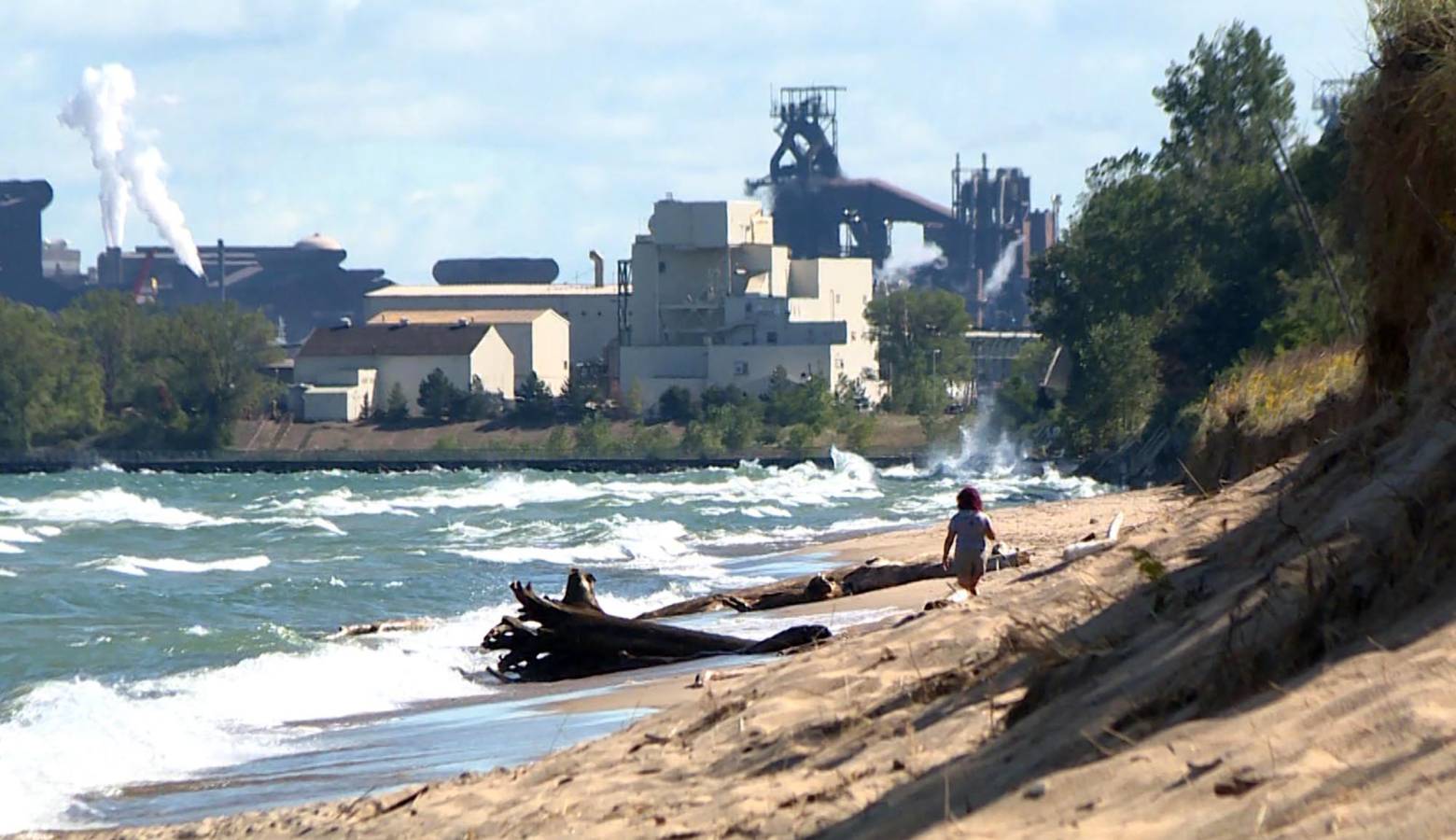U.S. Steel Revises Plans To Atone For Its Spill, But Is It Enough?

Government agencies and U.S. Steel have reached a new proposed agreement for how the company will make up for its hexavalent chromium spill. U.S. Steel’s northwest Indiana facility leaked 300 pounds of the cancer-causing chemical into a Lake Michigan waterway two years ago.
The revised agreement would require U.S. Steel to do more water pollution monitoring and better notify the people in the area when spills happen. That’s a welcome development to Susan Mihalo, who chairs the environmental advisory board for the town of Ogden Dunes.
“We shouldn’t be finding out from some other source or the press when there’s an incident,” she says.
But others are disappointed that this latest consent decree didn’t go further. The penalties to U.S. Steel — meant to deter the company from future environmental violations — haven’t gone up.
Attorney Rob Weinstock represents the Surfrider Foundation, an environmental group focused on water quality and water recreation. He says U.S. Steel still hasn’t adequately shown how it will prevent spills in the future.
“These are basic problems with maintenance practices, with training practices that existed before the April 2017 spill and appear to continue to plague this facility,” he says.
Weinstock says the facility has also had multiple spills in the past two years.
A federal court judge will decide whether or not to accept the new consent decree. U.S. Steel declined to comment.
Contact Rebecca at rthiele@iu.edu or follow her on Twitter at @beckythiele.
Indiana Environmental reporting is supported by the Environmental Resilience Institute, an Indiana University Grand Challenge project developing Indiana-specific projections and informed responses to problems of environmental change.
